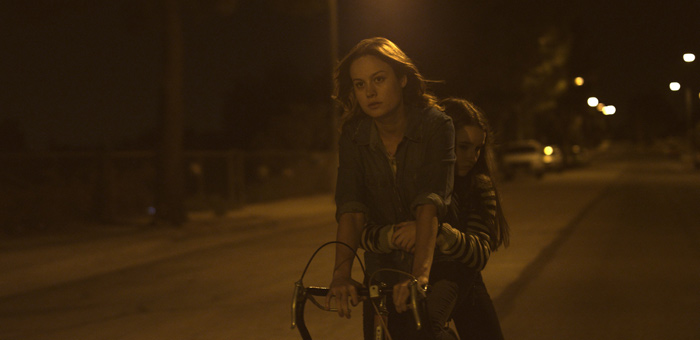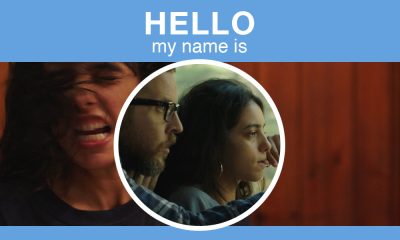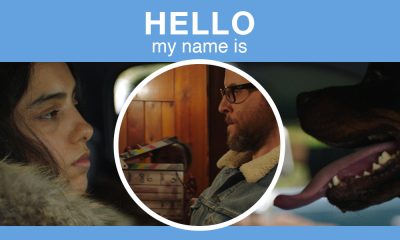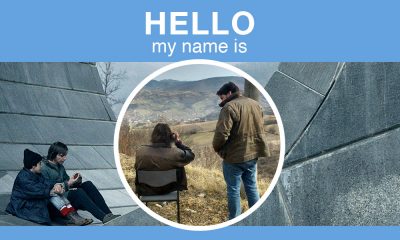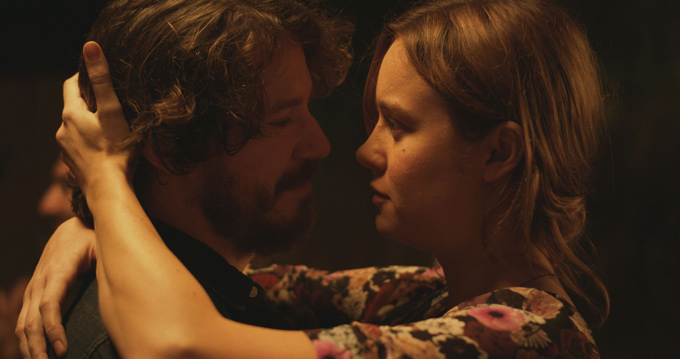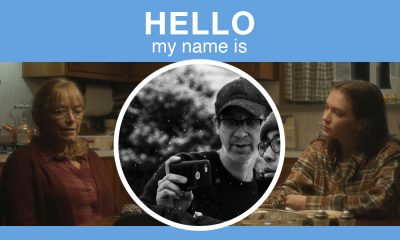IONCINEPHILE of the Month
IONCINEPHILE of the Month: Destin Daniel Cretton
IONCINEMA.com’s IONCINEPHILE of the Month feature focuses on an emerging filmmaker from the world of cinema. This August, we get to once again profile an American Independent filmmaker who had the wind blowing in his sails moments before he launched his micro-budgeted I Am Not a Hipster at Sundance in 2012. Before unleashing his sophomore film, the character-rich, emotionally textured Short Term 12 in March, Destin Daniel Cretton had won over the Sundance jury with the short film going by the same name (2009 Jury Prize in Short Filmmaking). Winner of the 2013 SXSW Film Festival Grand Jury Award (worth mentioning, of which I was a proud member of) and an Audience Award at a handful of fests since SXSW, its the folks at Cinedigm who’ll be launching the film in select theaters on August 23rd. Here is our profile on Destin Daniel Cretton and we’re lucky enough that the filmmaker had the time to share (during his busy press tour) his Top Ten Films List with us. Here’s this month’s IONCINEPHILE:
Eric Lavallee: During your childhood…what films were important to you?
Destin Daniel Cretton: I grew up on Maui where there were two small theaters to choose from on the island. There were six kids in my family, and not a lot of money to go around, so going to the movies was a rare treat. One of my earliest movie memories was watching Innerspace with my Dad and brother (Denim) at the Kaahumanu Theater. I had no idea how they got those cameras and actors to fly around inside a human body, and I didn’t care. It was magic, and that’s all that mattered. It was right around the time when Beta tapes were being replaced by VHS, and video rental stores were the happiest place on earth. Some of the movies that defined those years: Rad, North Shore, Moonwalker, Police Academy, Back to the Future, The Dark Crystal, One Crazy Summer, The Goonies, Splash, Short Circuit, Revenge of the Nerds, Bill & Ted’s Excellent Adventure, Pee-wee’s Big Adventure and Ernest Goes To Camp. I can’t tell you how much joy I get from just reading that list.
Lavallee: During your formative years what films and filmmakers inspired you?
Cretton: Most of the films that found their way across the pacific to play in our Maui theaters were sent from studios in Hollywood. So that’s what I grew up on. I didn’t know a thing about independent or international cinema until my senior year of college. My introduction to that world was Lars Von Trier’s Breaking the Waves, which was kind of like jumping into the deep end of a swimming pool with a rock tied around my neck. I think I forgot to breathe for the entire last act of that movie because my brain was too busy trying to process what I was seeing. That same week, I saw Magnolia, which felt like getting punched in the face and hugged at the same time, and I was hooked. I wanted to eat everything: The Celebration, Murmur of the Heart, The Crying Game, Live Flesh, Bottle Rocket, Three Colors, Breathless, The Umbrellas of Cherbourg, The Scent of Green Papaya. For a kid who grew up on Spaceballs, experiencing these films has been pretty mind-blowing. I still have a lot of catching up to do, and I’m having the best time doing it.
Lavallee: Up to now, your body of work includes several shorts, and back to back feature films, at what point did you know you wanted to become a filmmaker?
Cretton: I made my first short film during my senior year of college while at a semester-long program called the Los Angeles Film Studies Center (LAFSC). It was a black&white silent film shot on Super-8 called “Fortress.” When it was time to show our movies to the class, I was so nervous it felt like my stomach was trying to crawl up through my throat. And then my professor hit play, and everyone got quiet, and it wasn’t as bad as I thought. It was the first time I felt what it’s like to sit in the back of a room and watch people react to something that I had put so much of myself into. It’s a really magical thing. I really fell in love with the whole process and decided to do whatever it took to make another one. I don’t ever remember getting to a point where I had the guts to say, “I want to be a filmmaker.” It’s still really hard for me to say that. But it’s really easy to talk about how much I love making movies, whether or not I’m getting paid for it.
Lavallee: You received tons of accolades for the short film of the same name, at what point did you feel it made sense to revisit the film and lengthen it into a feature film?
Cretton: The positive reaction to the short was really unexpected for me. It’s a very personal story about a place that most people aren’t very familiar with, so I didn’t think a lot of people would relate to it. But at Sundance, I had so many wonderful conversations with people after the screenings that showed me for the first time how universal the themes in the movie were. People who had no familiarity with the Foster Care system were still connecting with the story and the struggles of its characters. That was my initial inspiration for writing the feature, and I was really eager to collect more stories and details from books and interviews with group home staff and counselors.
Lavallee: I believe Keith Stanfield is the only carry over from the short, I wanted to know what qualities were you looking for in the characters Grace (Brie Larson), Mason (John Gallagher Jr.) and Jayden (Kaitlyn Dever) – and how did you prep for their performances (was there a rehearsal process, did they research their characters?)
Cretton: There were a few core things about the characters that I was looking for. Grace needed to be able to communicate everything that was going on inside of her without using words. Mason needed to have a goofy & genuine goodness bubbling inside him. Jayden needed to have enough spunk and wit to balance her angst. But more than anything, I was looking for people who were excited to collaborate and figure out this puzzle together. Before shooting, Brie and John were able to shadow staff members of a group home very similar to the one portrayed in the movie. They both soaked in a lot from that experience. Brie was able to see the inner strength that’s needed to be a female supervisor at a place like this (the woman she shadowed had been working in the system for over 20 years). John saw how humor was used by staff members as a tool to deflate escalating situations. All the actors really took ownership of their roles and became experts on their characters’ habits, thoughts, and motivations. Their dedication really made my job easy, and made the collaboration a ton of fun.
Lavallee: You employ a naturalistic, handheld aesthetic – could you describe how that aesthetic choice contributed in building the film’s tone.
Cretton: I’ve been working with Brett Pawlak (my DP) since we shot the short film (also titled Short Term 12) back in 2008. From the beginning, we wanted to base all of our aesthetic choices around creating an environment that would help get the best performances out of our actors. This meant not having too many giant lights blinding them and heating up the room. It also meant trying to keep our set-up time to a minimum to allow more time to let the actors discover a scene. But that said, I also just really like the look Brett created. I think it has a raw beauty that feels alive and breathing. He operates the cam a lot of the time (along with our amazing 2nd camera, Chris Arata), and when he does, he becomes another performer in the scene, moving alongside the actors, his instincts responding to theirs. It’s a lovely dance to watch.
Lavallee: I thought the film’s strong suit was in the writing: from the dialogue exchanges, to some of the character’s own anecdotes to how the narrative is built with non-cliché strokes —- what is your approach to screenwriting, what is your regiment?
Cretton: I take a lot of walks when I’m writing, trying to work out the main problems before I touch my fingers to the keys. I have a tendency to zone-out when a story is floating around in my head. Thank goodness I have a very patient girlfriend, as I’m still trying to get better at drifting off at the appropriate times…mid-conversation not being one of them. When it’s time to start physically writing, I find an unpopular coffee shop (preferably without wifi) and do my best to keep somewhat of a schedule. I’m always trying to get to that place where the characters become so real that they start talking to each other on their own, doing things that surprise me, making me laugh and cry, and keeping me in suspense as to what they’ll do next, anticipating the next time I get to hang out with them. Again, thank goodness for my patient girlfriend.
Lavallee: Can you discuss the collaborative process you had with your Composer Joel P West…
Cretton: Working with Joel is the greatest. He did all the music for my first feature, I Am Not A Hipster, and it was really fun to do something a bit different this time around. Early in the editing process, he started sending us a bunch of samples to throw into the timeline and see what felt right. We went back and forth a bit, his music inspiring new visions for the edit and vice versa. We were always concerned with making sure that the music wasn’t pushing the emotions of a scene too far in one direction or another. Joel has a gift for creating melodies that can be interpreted in many different ways, depending on what you happen to be feeling or going through at the time it hits your eardrums. For me, his music has always been something that fuels thoughts and ideas that I’m already working through, rather than something that tells me exactly what to think and feel. That’s what we wanted for this movie, something that moves and dances alongside the scene without overpowering it and leaving no room for interpretation. And besides all of that, it’s just an incredibly beautiful score to listen to.
Lavallee: Can you discuss the collaborative process you had with your Editor, Nat Sanders…
Cretton: This is actually my first time working with an editor (I’ve edited all my previous films). There was definitely a part of me that was scared to let someone else hold the razor blade, but I was also really excited, since I’ve been a big fan of Nat’s work on his previous films (Humpday, Your Sister’s Sister). There’s definitely something nice about not being at the controls the whole time and getting to see the film from a few steps back. Nat’s a super smart guy and understands story, what’s needed and what’s not. So we spent a lot of time discussing, arguing, winning and losing battles for scenes and lines. We learned a LOT from our test screenings. I think we did about 5 of them, ranging from a small group of friends to 300 college freshman at an intro class. Every one of those screenings felt like watching the film through a new pair of eyes. I think we ended up with almost 30 minutes of deleted scenes (which we’ll be including in the DVD sometime in the furture), many of which were incredibly hard to give up. But in then end, I couldn’t be happier with where we ended up.
Lavallee: Anyone else you want to point out – give an extra mention?
Cretton: It’s SOOO hard to just pick one more person to talk about from our crew, because this movie wouldn’t be what it is if it wasn’t for ALL of them: John Maynard (Sound Mixer) and Dan Kloch (Boom Operator) were the best sound team ever, who were outlandishly positive, hardworking, and treated their job as the art-form it is. My sister (Joy Cretton) and Mirren Gordon-Crozier were the brains behind the wardrobe, and managed to find subtle, convincing costumes that often played against expectations. ALL of our producers were so supportive and fearless from day one of production all the way up until this very moment. Onnalee Blank (“Game of Thrones” mixer) & the rest of the post-sound team in LA & Skywalker Ranch just blew my mind every day we worked together. Our faithful colorist, Ian Vertovec (The Girl With The Dragon Tattoo), painted feelings onto the screen through contrast and color without losing his sense of humor. I could keep going until my fingers go numb. I just can’t say enough how lucky I am to have been able to work with this specific group of people on this particular project. It’s something I’ll carry with me forever.
Cinedigm releases the film in select theaters on Friday August 23rd. Visit the website for more info.



